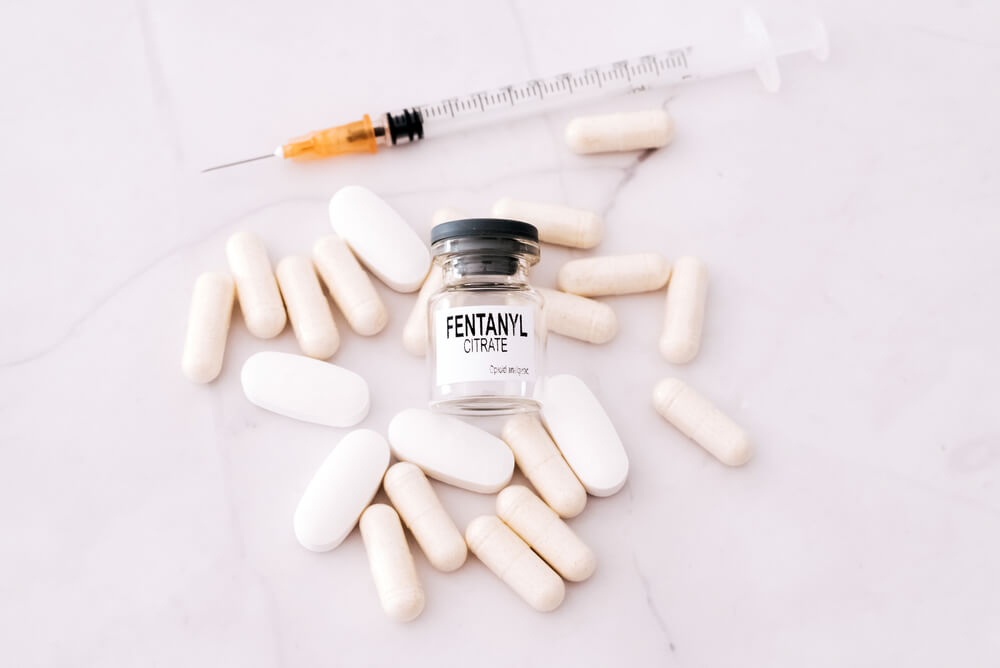An Ongoing Overdose Epidemic
Fentanyl use in America has caused an opioid overdose epidemic throughout the country that is ongoing, with increasing numbers of overdose deaths. According to the Centers for Disease Control and Prevention (CDC), overdose deaths are a leading cause of injury-related deaths in the country, with numbers increasing steadily since the COVID-19 pandemic. This frightening statistic has left many U.S. citizens asking how to overcome fentanyl addiction in their own lives, either due to their own substance use disorder or that of a loved one.
If you or a loved one is suffering from any form of addiction or abuse, please call Sylvan Detox at (818) 308-3099.
What is Fentanyl Used for?
Fentanyl is a potent pharmaceutical opioid drug that is used for serious pain management in those who have cancer, people recovering from certain surgeries, and people resistant to other opioid pain medications. It is provided as a shot in a hospital setting, in a slow-release patch, or in a lozenge that can be sucked on. As fentanyl is 80 to 100 times as potent as morphine, it is imperative that this medication never be shared or abused.
Fentanyl is also made illegally in underground labs, and sold as liquid, powder, or pills. It may even be sold on blotter paper. This illicit fentanyl is produced for illegal sale on the streets for the explicit use of getting high. It is never safe to use fentanyl without constant medical supervision, and this illegal unregulated type is hazardous as there is no quality control or safety measures in place during the manufacturing process. The risk of overdose is extremely high.
Signs of Fentanyl Addiction
Some common signs that you or a loved one may be addicted to fentanyl include:
- Being unable to quit or cut back on fentanyl even with the ongoing desire to quit
- Spending a large portion of the day, energy, and money to obtain fentanyl, abuse it, and recover
- Missing out on important events due to fentanyl use
- Being unable to fulfill life’s important obligations at home, work, or school due to fentanyl abuse
- Feeling uncomfortable withdrawal symptoms when fentanyl runs out, like restlessness and irritability, muscle pain, flu-like symptoms, fast breathing, high blood pressure, nausea, vomiting, and overall weakness
- Feeling afraid or angry at the prospect of running out of fentanyl
- Buying fentanyl illegally on the street
- Socially withdrawing, or changing friend groups to spend time with other fentanyl users
- Using fentanyl even when it is dangerous to do so, like while driving a car
- Using prescription fentanyl not as prescribed by a doctor or taking it longer than it is needed
- Continuing to abuse fentanyl even when it causes negative physical and mental health issues
- Experiencing cravings and urges to use fentanyl
The Physical Impact of Fentanyl
When you first use fentanyl, you may experience an intense short-term high with temporary euphoria. This drug affects the central nervous system and the respiratory system, causing sedation, nausea, confusion, and other effects like:
- Slurred speech
- Itchy skin
- Hallucinations
- Headaches
- Dry mouth
- Cough
- Convulsions
- Fever or chills
- Mood changes
- Pounding in ears
- Back or side pain
- Nervousness
- Numb hands, lips, or feet
- Impaired judgment leading to risky situations
- Fatigue
- Worsening mental health issues
- Signs of opioid use disorder and withdrawal
Using fentanyl multiple times can lead to long-term damage to the cardiovascular system and respiratory system, leading to pneumonia, heart failure, and other dangerous conditions. The slowed respiration can quickly become deadly, as using even a small amount of fentanyl causes the body to become hypoxic, with not enough oxygen getting to the brain. This can lead to coma, brain damage, and death if not treated immediately.
3 Steps to Overcome Fentanyl Addiction
If you are looking for tips on how to overcome fentanyl addiction, it is important to know that most people will require a detox period followed by an intensive rehab program to be able to avoid relapsing. Fentanyl is a powerful drug, and its use causes changes to the way the brain works, making quitting much more of an involved process than simply stopping.
- Medical detox: Trained medical professionals can help you with your detox, as withdrawal symptoms from opioid drugs can become dangerous to your health and may feel impossible to overcome on your own. With the help of experienced doctors and nurses, you will be kept safe. You may be provided with prescription doses of medications to help you through discomfort, nausea, high blood pressure, and other ill effects of quitting fentanyl, including drug cravings. Some people may need longer-term medication-assisted treatment (MAT) to help them slowly wean off of opioid drugs. A MAT program will keep cravings, pain, and other difficult withdrawal symptoms at bay, so you can move forward in a positive trajectory into rehab and back to your everyday life with a much lower risk of relapsing.
- Inpatient rehab: Many people quitting fentanyl will benefit from inpatient rehab, where you will move in, usually for 30 to 90 days, living day and night inside a safe, sober, and supportive environment. Days are scheduled to keep you busy with medical treatments, group therapy, individual therapy, mental health care, exercise and nutrition programs, and more. Every rehab program is unique, so researching options in your area is a good idea. Some may include holistic treatments along with evidence-based care for a balanced approach to healing. Some private rehab centers may include luxury accommodations and services, while government-owned rehabs are often more bare-bones. Prices vary as well, and you will want to ensure your insurance will cover some or all of your stay to keep your treatment affordable.
- Long-term support, care, and recovery resources: Through programs and services including outpatient rehab, sober living support, case management services, ongoing therapy and medical care, and other recovery resources, you will never be on your own again in your sobriety. Quitting fentanyl involves so much more than simply stopping the drug, you may need to make new friends, hang out at new places, and reframe your mindset, with goals that aim you toward healthier living. Support groups, alumni groups, and family support can help you and your loved ones work together to encourage a new beneficial lifestyle that is free from drug use, and ongoing rehab or therapy programs can give you the mental health and emotional care you need as you transition back into life after inpatient treatment.
Sylvan Detox Can Help with Addiction
At Sylvan Detox, we offer caring support and effective medical treatments that can help you or a loved one overcome addiction once and for all. Through an integrated approach that combines luxury accommodations, medical care, behavioral therapy, and more, you will gain the confidence and knowledge required to remain free of harmful substances, with connections to our nationwide network of outpatient rehab programs, sober living homes, peer support groups, alumni groups, and other recovery resources that will be available to you for a lifetime.
Please call us right away if you want to know more about how to overcome fentanyl addiction, or if you would like to know more about our luxury accommodations and services, the different types of individual and group therapies we offer, or if you would like to verify insurance coverage. We are here for you, and can help you take back control over your life after addiction.

